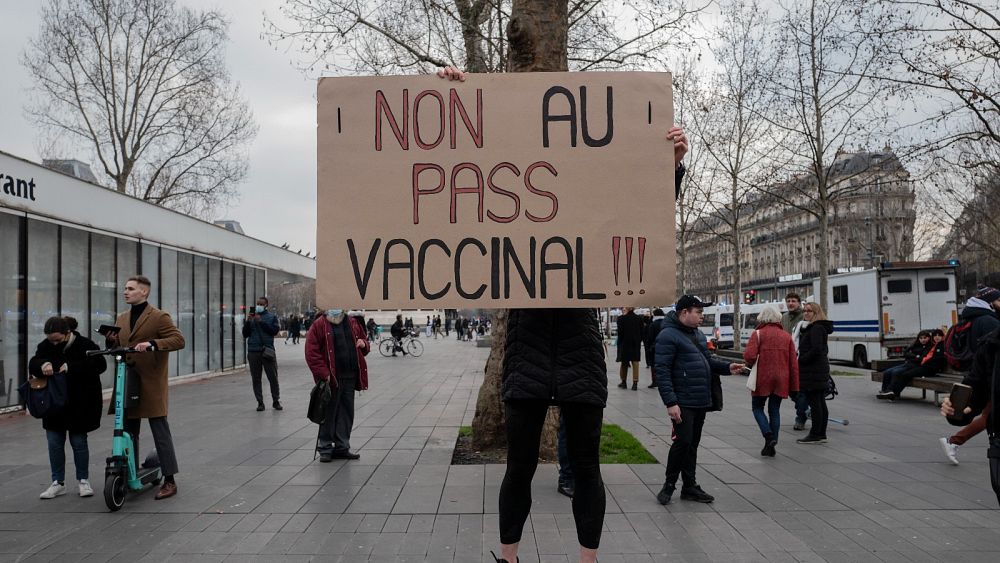
A controversial new “vaccine pass” enters into force in France today.
The pass will allow those recently recovered from the disease or fully vaccinated (and over the age of 16) to access bars, restaurants, inter-regional transport and other public spaces.
It replaces the country’s “health pass” and means those testing negative for the disease are no longer able to enter such venues.
The introduction of the new pass is an attempt to increase France’s vaccination rate. Earlier this month President Emmanuel Macron caused controversy by saying he wanted to “piss off” the unvaccinated “to the very end”.
The law was adopted last week after intense parliamentary debates.
“The vaccine pass is a game-changer and will allow normal activities to resume again,” said Jean-Baptiste Lemoyne, France’s minister for tourism and small businesses, on Europe 1 radio.
“Last summer, the health pass is what allowed us to face the (virus) wave and keep open a certain number of businesses: well here it is the same,” he added.
Tens of thousands of people across France protested the vaccine pass over the weekend, stating that their freedom of choice was being infringed upon.
It comes as France logs record-high COVID-19 cases, with nearly half a million daily infections on multiple days last week.
While COVID-19 cases have filled French hospitals, they are not yet completely saturated due to the high vaccination rate. Around 75% of patients in intensive care units have COVID-19, according to French government statistics.
Nearly 78% of France’s population is fully vaccinated and 49% have received a booster jab.
Despite the high infection rate in France, the government outlined a plan to lift restrictions from February.
Prime Minister Jean Castex said last week that mandatory mask-wearing outside and working from home will end from 2 February.
Nightclubs, which have been closed since December, will be able to reopen from 16 February.